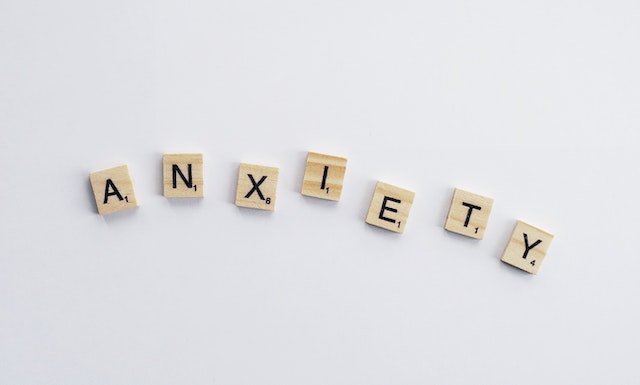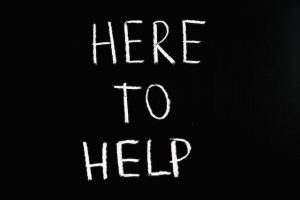
Mental Health for Healthcare Professionals – 10 Tips for Top Performers
Hello! Long time no write. We’re back with another blog with a focus on mental health for healthcare professionals. Interestingly, mental health, while totally ignored, is a crucial component of both personal fulfilment and a community’s capacity for functioning.
The majority of affluent nations support it, while many third-world countries—Nigeria being one of the finest examples—don’t see the need to. I mean, an average Nigerian hears the word or phrase “mental health” and thinks immediately “This is not for me” or “I’m doing alright”. Someone between the ages of 30 and 40 would likely have a very different perspective on mental health than someone who is between the ages of 50 and 60 or 70.
The term “mental health” would likely pique the interest and open the minds of the average Nigerian between the ages of 15 and 25, as opposed to the automatic response of “God forbid. ” Now that we’ve gotten these simple facts out of the way, we can talk about exactly what mental health is.
In accordance with the World Health Organization (WHO), mental health is defined as a “state of well-being in which the individual realizes his or her own abilities, can cope with the normal stresses of life, can work productively and fruitfully, and is able to make a contribution to his or her community.” It is the state of a person’s psychological and emotional well-being.

Having said that, we will now turn our attention to the millions of Nigerians—including healthcare providers—who may be struggling with mental health issues. Before the outbreak of the COVID-19 pandemic, statistics had indicated that one in every four Nigerians (that is, an average of 50 million people) suffered from a mental illness.
The enormous global burden of disease caused by mental disorders is largely ignored and underappreciated. Over two-thirds of people who are affected by a mental disorder do not receive the care they require, even though about 30% of the population worldwide experiences one each year.
Common mental illnesses like depression, anxiety and disorders linked to substance abuse were predicted to cause more people to become disabled by the year 2020 than complications from AIDS, heart disease, accidents, and wars combined! A broad spectrum of mental health issues is referred to as ” mental health disorders”.
They are illnesses that have an impact on a person’s emotions, thoughts, and actions. However, a mental health issue turns into a mental disease when persistent symptoms frequently stress a person out and impair their capacity to operate.
Common Mental Health Issues among Healthcare Professionals
Anxiety Disorders
Every person occasionally deals with anxiety in one way or another. It might be before you write an exam, before speaking to a lady you’ve been crushing on for a while, or when you have to deliver a crucial presentation at work. However, anxiety disorders involve more than just passing apprehension or worry; they typically persist and eventually worsen if left untreated.
Post-traumatic stress disorder, obsessive-compulsive disorder, generalized anxiety disorder, panic disorder, particular phobias, etc. are all examples of anxiety disorders. It is common for individuals with these disorders to exhibit physical symptoms of panic, such as a rapid heartbeat and perspiration, as well as feelings of fear and dread in response to certain things or circumstances.
Depression
Depression often takes many forms. In some cases, it may look like sadness, or a sense of low self-worth, interrupted sleep or appetite, a loss of interest or enjoyment, exhaustion, or trouble concentrating.
The World Health Organization estimates 3.8% of the population is affected, with 5.0% of adults and 5.7% of people over 60 years of age being impacted. Around 280 million individuals worldwide suffer from depression.
If these symptoms continue to be recurrent and of a moderate to severe degree, they may develop into a significant medical illness. The affected person may experience severe suffering and perform poorly at work, in school, or in the family. Suicide can equally result from depression at its worst. Every year, around 700,000 people die by suicide. For people aged 15 to 29, suicide is the fourth most common cause of death.
Dementia
Dementia is a word used to describe poor memory, thinking, or decision-making that interferes with performing daily tasks rather than a specific disease. As far as dementia goes, Alzheimer’s disease is the most prevalent. It’s a common misconception that dementia primarily affects elderly people.
It is projected that by 2060, nearly 14 million people will be affected.
Each person may experience it differently since it’s broad. Memory, attention, communication, reasoning, judgment, and problem-solving are all compromised in dementia patients.
Warning signs of dementia could be: becoming lost in a familiar area; using unfamiliar terminology to refer to regular items; having trouble remembering the name of a close relative or acquaintance; erasing previous recollections, or even not being able to do basic tasks by yourself.
Other illnesses related to mental health may be developmental disorders, bipolar disorder, schizophrenia, and other psychoses.
Healthcare workers need and deserve proper health checkups, attention, and care just like everyone else, despite common misconceptions that they are exempt from normal human struggles because of their line of work or speciality.
Mental Health Tips for Healthcare Professionals in Nigeria
Tips to help healthcare professionals manage mental stress and perform at their best include:
- Re-balancing work and home (Your physical, emotional, and mental health can all be improved by having a healthy work-life balance).
- Connecting with Supportive People. (Discuss how you are feeling and possible coping mechanisms with your parents, friends, counsellors, doctors, or even your religious leader).
- Regular checkups should be made with a counsellor, coach, or therapist. (You don’t have to wait until there is an issue to take preventive action).
- For conversations and topics relating to mental health, do your research, study, and seek out new information frequently.
- Trying yoga, meditation, or stress reduction techniques while also getting enough rest.
- Making time to unwind. Try engaging in some other enjoyable activities.
- Connecting with your community- or faith-based organizations.
- Avoiding drugs and alcohol can create additional problems and increase the stress you are already feeling.
- Knowing when you need more assistance. Speak with a psychologist, social worker, or trained counsellor if the issues persist or if you are contemplating suicide.
FOR MORE INFORMATION CONTACT US FOR MORE DETAILS ON +2348113637505 or simply request a demo with us today.

